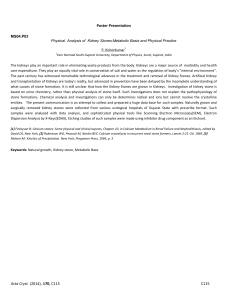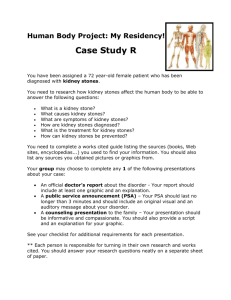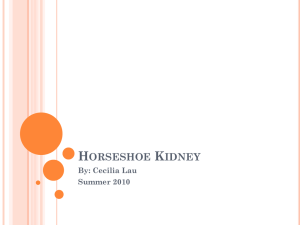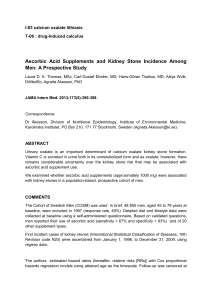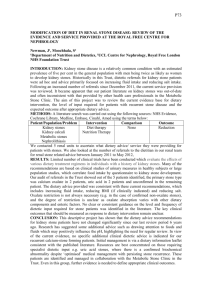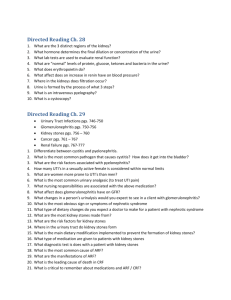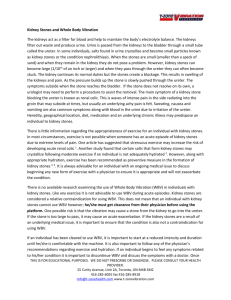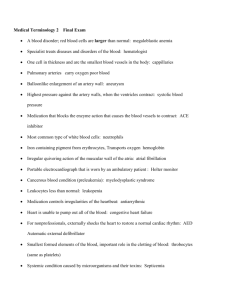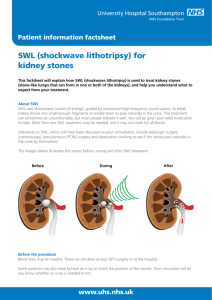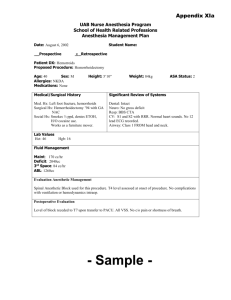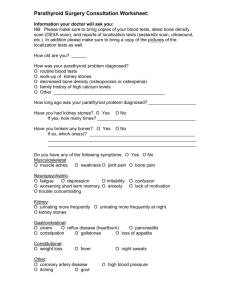Glucose Curve Procedure For Diabetics
advertisement
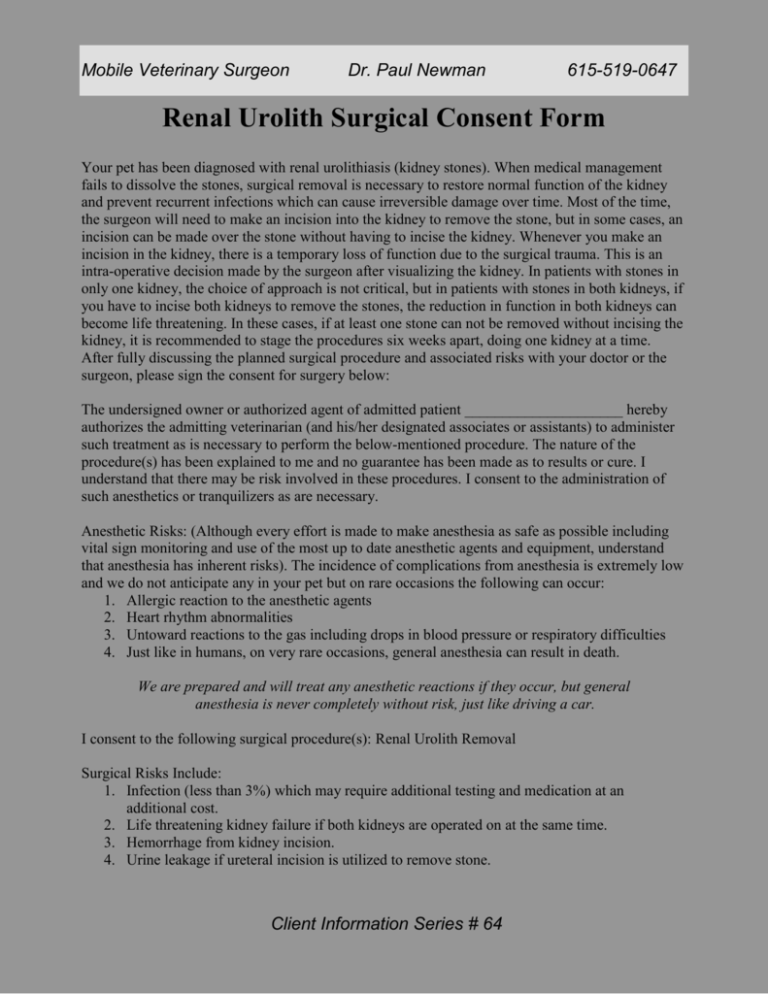
Mobile Veterinary Surgeon Dr. Paul Newman 615-519-0647 Renal Urolith Surgical Consent Form Your pet has been diagnosed with renal urolithiasis (kidney stones). When medical management fails to dissolve the stones, surgical removal is necessary to restore normal function of the kidney and prevent recurrent infections which can cause irreversible damage over time. Most of the time, the surgeon will need to make an incision into the kidney to remove the stone, but in some cases, an incision can be made over the stone without having to incise the kidney. Whenever you make an incision in the kidney, there is a temporary loss of function due to the surgical trauma. This is an intra-operative decision made by the surgeon after visualizing the kidney. In patients with stones in only one kidney, the choice of approach is not critical, but in patients with stones in both kidneys, if you have to incise both kidneys to remove the stones, the reduction in function in both kidneys can become life threatening. In these cases, if at least one stone can not be removed without incising the kidney, it is recommended to stage the procedures six weeks apart, doing one kidney at a time. After fully discussing the planned surgical procedure and associated risks with your doctor or the surgeon, please sign the consent for surgery below: The undersigned owner or authorized agent of admitted patient _____________________ hereby authorizes the admitting veterinarian (and his/her designated associates or assistants) to administer such treatment as is necessary to perform the below-mentioned procedure. The nature of the procedure(s) has been explained to me and no guarantee has been made as to results or cure. I understand that there may be risk involved in these procedures. I consent to the administration of such anesthetics or tranquilizers as are necessary. Anesthetic Risks: (Although every effort is made to make anesthesia as safe as possible including vital sign monitoring and use of the most up to date anesthetic agents and equipment, understand that anesthesia has inherent risks). The incidence of complications from anesthesia is extremely low and we do not anticipate any in your pet but on rare occasions the following can occur: 1. Allergic reaction to the anesthetic agents 2. Heart rhythm abnormalities 3. Untoward reactions to the gas including drops in blood pressure or respiratory difficulties 4. Just like in humans, on very rare occasions, general anesthesia can result in death. We are prepared and will treat any anesthetic reactions if they occur, but general anesthesia is never completely without risk, just like driving a car. I consent to the following surgical procedure(s): Renal Urolith Removal Surgical Risks Include: 1. Infection (less than 3%) which may require additional testing and medication at an additional cost. 2. Life threatening kidney failure if both kidneys are operated on at the same time. 3. Hemorrhage from kidney incision. 4. Urine leakage if ureteral incision is utilized to remove stone. Client Information Series # 64 Mobile Veterinary Surgeon Dr. Paul Newman 615-519-0647 5. Recurrence of stones in the future if they are not preventable with diet or medication (determined after stone analysis after surgery) 6. Blockage of ureter by small stones that can break loose from larger stone which requires further surgery. Strict adherence to post-surgical care and medicating of your pet will minimize these potential complications and serious problems are very uncommon in most cases. ______________________________________________________________________________ Date Pet Owner/Agent Signature Phone I Can Be Reached At Today Client Information Series # 64
